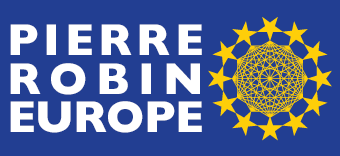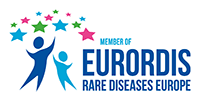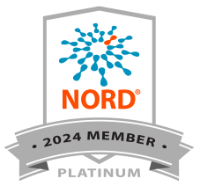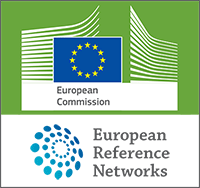ERN-Cranio’s EU Clinical Practice Guidelines for Pierre Robin Sequence
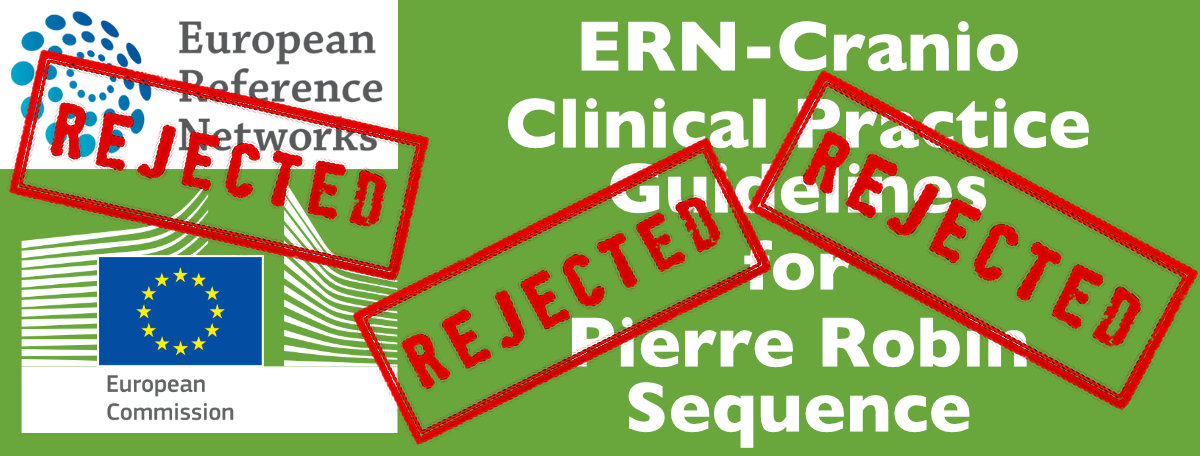
When EU Guidelines for a rare disease are officially rejected by the EU’s top two experts on that rare disease, then the EU Guidelines are nonviable.
Wednesday 30 March 2022
From: Philippe Pakter
Date: Wednesday 30 March 2022
Subject: Request for final approval of the European Guideline on Robin Sequence
To: Dr. Irene Mathijssen
CC: All members of the ERN-Cranio Guideline Development Group for Pierre Robin Sequence
Dear Dr. Irene Mathijssen, Coordinator, ERN-Cranio,
Yesterday I asked an ERN-Cranio physician to share with me the final version of ERN-Cranio’s EU Clinical Practice Guidelines for Pierre Robin Sequence, because neither you nor your colleagues gave me access to these files. I went straight to the chapter on first line treatments. I read the following.
“Clinicians and many families will be aware of the general recommendation for infants is to be nursed in the supine position to reduce the risk of sudden death infant syndrome (SIDS), however, prone positioning is widely accepted and effective in up to approximately three-quarter of the RS patients. Close monitoring of O2 saturation should prevent SIDS… Positioning treatment is easily taught and there are few harms associated with this intervention although escalation of care must occur in non-responders.”
Our understanding of evidence-based medicine is that it involves a careful review of the medical literature in order to evaluate the benefits and harms of various interventions, according to objective criteria. Objective criteria in the context of Pierre Robin Sequence is polysomnography, the gold standard for objectively measuring the severity of upper airway obstruction among Pierre Robin Sequence babies.
Concerning benefits: these ERN-Cranio EU Guidelines recommend prone positioning as a first line treatment, based on the claim that prone positioning is “effective in up to approximately three-quarter of the RS patients”. However, a 2021 systematic review study published by the international Pierre Robin Sequence consensus movement – international Pierre Robin Sequence experts from all over the world – stated the following: “Three studies used PSG to estimate the effect of prone positioning and demonstrated that it did not completely resolve OSA in the majority of infants.” Thus, the number of evidence-based studies which actually relied on PSG to objectively gauge the benefits of prone positioning is extremely low – and in these studies, prone positioning failed to resolve OSA in the majority of cases.
Concerning harms: these ERN-Cranio EU Guidelines recommend prone positioning based on the claim that “there are few harms associated with this intervention”. However, according to a landmark paper on SIDS published in the Lancet (“Sudden unexplained infant death in 20 regions in Europe: case control study”), prone sleeping increases a baby’s risk of SIDS by over 13 times. Once again, ERN-Cranio’s EU Guidelines: “there are few harms associated with this intervention”; and the Lancet: a 13 times increase in the risk of SIDS.
ERN-Cranio’s EU Guidelines state that “Close monitoring of O2 saturation should prevent SIDS”. No evidence at all is provided in support of this statement – and it gets worse. This close monitoring of O2 saturation which “should” prevent SIDS is entirely optional: “Consider positioning therapy (either prone or lateral positioning with or without a saturation monitor) as first-line to relieve mandibular-related OSA or UAO”.
The benefits of the intervention are exaggerated; the risks are minimized; contradictory studies are omitted outright – and, for good measure, these Guidelines engage in sheer speculation (monitoring “should” prevent SIDS). Dr. Irene Mathijssen, as Coordinator of ERN-Cranio, you accepted EU funds on the basis that you would produce evidence-based Guidelines of care for the EU. We and others – including some of the most internationally renowned Pierre Robin Sequence experts in the world – believe that this is not evidence-based medicine. What other critical evidence is distorted or omitted, how many other unsupported statements and recommendations might be found, scattered throughout this document?
In a June 2021 letter we warned Dr. Andrzej Rys, Director, European Commission DG SANTE, and Prof. Till Voigtländer, Co-chair of the ERN Board of Member States, that this is exactly what would happen, and this would be the inevitable result, of an allegedly “EU” Guideline development project for a rare disease which intentionally excluded the EU’s top two experts in that rare disease. When an allegedly “patient-centered” Guideline working group included not a single Pierre Robin Sequence patient or parent – not one single Pierre Robin Sequence patient or parent – a shocking situation which continues to this day. “It is expected that all stakeholders should strive to adhere to the recommendations set out in this Chapter”. We who represent the ultimate stakeholders, babies suffering from this life-threatening rare disease, reject this document.
It has been brought to our attention that your hospital, Erasmus Rotterdam Medical Center, and the Great Ormond Street Hospital in London, may be bound together in a relationship with a certain American body, ICHOM, involving common financial and funding interests. This pre-existing relationship between Erasmus Rotterdam MC, and the Great Ormond Street Hospital in London, potentially creates the impression of a perceived conflict of interest. Erasmus Rotterdam MC, which is in charge of ERN-Cranio, favored the Great Ormond Street Hospital, and included the Great Ormond Street Hospital in this EU project – in spite of the fact that the Great Ormond Street Hospital is not a member of ERN-Cranio. At the very same time, Erasmus Rotterdam MC excluded the EU’s top two experts on this rare disease, on the exact same basis – that they were not members of ERN-Cranio. We will ask the research oversight boards to investigate this matter, because if the EU’s top two experts on this rare disease had not been arbitrarily excluded from this EU project by Erasmus Rotterdam MC, then the “final version” of this “EU” Guideline we are discussing today would be a higher quality document.
As ERN-Cranio’s official ePAG patient organization representing Pierre Robin Sequence patients, we request an invitation and link to participate in the upcoming discussion scheduled for 31 March 2022 concerning this EU document which was produced about us, without us.
Best regards,
Philippe Pakter
Chairman, Pierre Robin Europe: ERN-Cranio’s official patient organization for Pierre Robin Sequence
Member, EURORDIS, The European Organisation for Rare Diseases
Member, VSOP, Vereniging Samenwerkende Ouder-en Patiëntenorganisaties
PhD candidate, law: “Access to healthcare in Europe: the effectiveness of EU legislation in the context of rare disease patients”
Friday 18 March 2022
From: Philippe Pakter
Date: Friday 18 March 2022
Subject: Request for final approval of the European Guideline on Robin Sequence
To: Dr. Irene Mathijssen
CC: All members of the ERN-Cranio Guideline Development Group for Pierre Robin Sequence
Dear Dr. Irene Mathijssen, Coordinator, ERN-Cranio,
You have released the final version of the EU Clinical Practice Guidelines for Pierre Robin Sequence.
The EU’s top two experts on Pierre Robin Sequence, Prof. Dr. Christian Poets at the Tübingen University Hospital, and Prof. Dr. Corstiaan Breugem at Amsterdam University Medical Center, have both formally rejected them.
When EU Guidelines for a rare disease are officially rejected by the EU’s top two experts on that rare disease, then the EU Guidelines are nonviable.
As ERN-Cranio’s Coordinator you may now be considering the option of moving forward anyway and rushing to publication, over the serious critiques of your internationally respected colleagues – Prof. Dr. Corstiaan Breugem, Prof. Dr. Siegmar Reinert, Prof. Dr. Christian Poets, Prof. Dr. Bernd Koos, and others. The ERN Coordinator is responsible for the way this project has been managed; in the same way you will be held responsible for what comes next. My colleagues and I are in touch with various Dutch and international bodies, including formal research oversight boards. They will receive a copy of this email and they will consider a number of issues, including the following.
- In developing these PRS Guidelines, Erasmus MC intentionally excluded the EU’s top two experts on this rare disease: Prof. Dr. Corstiaan Breugem, and Prof. Dr. Christian Poets. Prof. Dr. Corstiaan Breugem organized the world’s first international PRS consensus meeting, thereby launching the international PRS consensus movement; he has also published more research on PRS than any physician we know of in the world today.
- Erasmus MC also excluded Prof. Dr. Christian Poets, of the Tübingen University Hospital, who manages the multidisciplinary team of highly specialized experts which administers a breakthrough PRS treatment, the Tübingen Palatal Plate. The Tübingen Palatal Plate has been adopted by Stanford University, and by Harvard University – with training and support from Prof. Dr. Christian Poets and his team.
- Although Erasmus MC excluded these two world-class PRS experts from this EU-funded PRS Guideline development project, Erasmus MC is not itself an Orphanet Center of Expertise for PRS, which makes the exclusion of the EU’s top two PRS experts even more troubling.
- ERN-Cranio, in order to justify the exclusion of these two world-class PRS experts from this PRS Guidelines project, stated in writing that “we are not allowed to involve centers outside the ERN CRANIO network”. There is no such rule. Furthermore Erasmus MC’s Dr. Eppo Wolvius, who made this statement, knew when writing it that the Great Ormond Street Hospital, which is “outside the ERN CRANIO network”, was involved in this project – because he and others at Erasmus MC were working on the Guidelines alongside the Great Ormond Street Hospital physicians. Openness and transparency are absolutely vital for high quality research; arbitrary decision making based on relationships and politics make it impossible to achieve top quality research results.
- In September we received a letter from the Dutch Ministry of Health indicating that ERN-Cranio had informed the Dutch Ministry that these top two PRS experts were now a part of this PRS Guideline development project. Nevertheless in November 2021, when ERN-Cranio organized a meeting in Rotterdam to discuss these PRS Guidelines, Prof. Dr. Corstiaan Breugem and Prof. Dr. Christian Poets were both excluded. Prof. Dr. Corstiaan Breugem, whose PRS research volume exceeds that of any living PRS expert, is based in Amsterdam. Thus ERN-Cranio excluded from this important PRS Guideline development meeting a PRS expert with incomparable PRS research experience, who was located only 80 kilometers away.
- Under additional pressure from the Dutch Ministry of Health, ERN-Cranio finally permitted these two experts to provide written feedback on the draft document which ERN-Cranio had produced without them. In our 13 December 2021 letter to the German Health Minister Dr. Karl Lauterbach, we described some of the serious serious flaws, medical inaccuracies, misinterpreted research, unsupported conclusions, overlooked medical studies, and multiple forms of bias, which the Tübingen University Hospital identified in ERN-Cranio’s late 2021 draft.
- From the perspective of research quality, the key question is this: what did ERN-Cranio do with this feedback? ERN-Cranio largely ignored it. After reviewing the most recent draft of these PRS Guidelines, the final version, the Tübingen University Hospital indicated the following. “Most of our comments submitted on Nov 4 were not included in the set of documents the Rotterdam team created… They were apparently largely treated as if non-existing.” Once again this is PRS knowledge and expertise submitted by a world-class PRS Center of Expertise, the Tübingen University Hospital, which has achieved a medical breakthrough in PRS care, a breakthrough which has been adopted by Stanford and Harvard. Top quality evidence-based research requires at a bare minimum that all scientific evidence is considered – particularly if the evidence is presented by an internationally recognized expert.
- The Dutch Ministry of Health asked Erasmus MC if they were including PRS patients in the Guideline Development Group. The response from ERN-Cranio was to bring in Mr. Gareth Davies. Mr. Gareth Davies is a very dear man, but he represents patients with cleft lip/cleft palate. The goal of this project however was to develop Guidelines of care for PRS. There is a stark difference between cleft lip/cleft palate, and PRS – a complex heterogeneous rare disease characterized by high morbidity, high mortality, and a high level of associated conditions.
- ERN-Cranio has an official patient group representing PRS patients; it is called Pierre Robin Europe. Starting in April 2021 Pierre Robin Europe raised valid, serious questions about the way this research project was being managed. Our most serious concern was the exclusion from the PRS Guideline development group of the EU’s top two PRS experts. Pierre Robin Europe also protested the fact that there were zero patients in the Guideline Development Group. ERN-Cranio responded to the valid concerns we had raised by excluding us completely, and in our place using a substitute who does not represent patients suffering from this complex life-threatening rare disease. ERN-Cranio excluded Pierre Robin Europe from every single meeting which has ever been held in relation to these PRS Guidelines. We at Pierre Robin Europe have not had the opportunity to interact with a single healthcare provider in the Guideline Development Group. Many, perhaps most of the healthcare providers in the Guideline Development Group do not know that we exist. We, ERN-Cranio’s official patient organization representing the PRS rare disease community, were not involved in the discussion of the scope of these PRS Guidelines. We were not involved in the discussion of the clinical questions which the Guidelines would address. We were not permitted to share our perspective on the relative importance of the clinical questions. We were not given the chance to rate the importance of outcomes. A local Dutch company called Qualicura was hired to provide training for the members of the Guideline Development Group, training which was paid for by the EU; we were not told that such training was taking place. We were not invited to the November 2021 meeting in Rotterdam to discuss these Guidelines. We were not even sent a copy of the final version of these EU Guidelines. We are not on the Guideline Development Group’s email recipient list. We are ERN-Cranio’s one and only PRS patient organisation, and ERN-Cranio excluded us altogether. Quality research is absolutely impossible when those who raise valid questions, or who present dissenting views, are marginalized or excluded.
- The highly respected Coordinator of another ERN, after learning how this project in ERN-Cranio was being managed, signed an official letter of complaint to Prof. Dr. Karl Lauterbach, the German Health Minister, a fact which can be confirmed through the Minister’s office.
The EU’s European Reference Networks are legally mandated to produce evidence-based patient-centered rare disease Guidelines of care, drawing upon the top rare disease experts in the EU. ERN-Cranio had all the resources it needed to produce outstanding PRS Guidelines. In support of this work, the European Commission spent approximately 4,000,000 Euros of EU taxpayer money (Tender N° SANTE/2018/B3/030) to create an official EU Methodology for the ERNs to use when developing Clinical Practice Guidelines for the EU’s rare disease community. The European Commission spent 100,000 Euros of EU taxpayer money (Tender N° SANTE/2017/B3/083) to hire a contractor to develop templates and documents for the ERNs. The European Commission DG SANTE informed us, Pierre Robin Europe, in a letter dated 1 October 2021 (Ref. Ares(2021)5983971), that the European Commission spent an additional 50,000 Euros of EU taxpayer money to provide ERN-Cranio with direct financial support, for this PRS Guideline development project. The financial resources were available. The necessary infrastructure and tools were available. Most importantly, the EU’s top two PRS experts were available – and they were ready, willing, able, and eager to contribute. So too was Pierre Robin Europe, ERN-Cranio’s official PRS patient organisation. In spite of the promising opportunity and abundant resources, this project has failed. The failure is managerial in nature, and the responsibility falls upon the Coordinator of ERN-Cranio. A formal, fully open and transparent investigation will follow.
Kind regards,
Philippe Pakter
Chairman, Pierre Robin Europe: ERN-Cranio’s official patient organization for Pierre Robin Sequence
Member, EURORDIS, The European Organisation for Rare Diseases
Member, VSOP, Vereniging Samenwerkende Ouder-en Patiëntenorganisaties
PhD candidate, law: “Access to healthcare in Europe: the effectiveness of EU legislation in the context of rare disease patients”
From: Dr. Corstiaan Breugem
Date: Saturday 12 March 2022
Subject: Request for final approval of the European Guideline on Robin Sequence
To: Dr. Eppo Wolvius; Mr. Gareth Davies
CC: Dr. Irene Mathijssen; All members of the ERN-Cranio Guideline Development Group for Pierre Robin Sequence
Dear Eppo,
I would like to congratulate you and your team for doing a lot of work.
When I support a Guideline, I make sure I support something that we can always comply to. It should not be the “ideal” world, but it should be practical and achievable, based on the current literature or include experts in the field. If I do not follow the guideline, there should be a good reason, and this should not happen regularly. Last year I gave you reasons why I think this current guideline is not a practical guideline. It does also not include some relevant literature.
We were given the opportunity to give suggestions in October 2021. I see that many have not been included. My pediatricians for instance say that it is not practical to say that everybody should have a “PSG” before and after palatoplasties and pharyngoplasties. We work in a National reference centre for Robin sequence and see many patients. This is just not practical. Also simply saying a “PSG” is not enough. What criteria do we agree upon are safe to do surgery. Do we really need a PSG in every patient before and after surgery. Maybe in an ideal world. What other ways eg questionnaires, lab test are more practical and should performed, before we suggest doing a PSG in everybody. We feel that suggestions are made in this guideline that are not in reality with what can be achieved in practical care.
I also have a problem with the name “European Guideline”. The European Reference Network includes specialized centers in Europe and is not representative of the whole of Europe. I think at the most, you can call this a ERN Guideline. I am unsure if the ERN has the authority to call this a European Guideline because no National Cleft Association has been involved in the development of this guideline.
Although I see that you and your team have incorporated a lot of effort in this guideline, I am sorry to say, but we cannot support this in its current form.
Best wishes
Corstiaan
Kind regards
Prof. dr. Corstiaan Breugem (MD PhD)
Professor in Plastic and Reconstructive Surgery
Head Pediatric Plastic Surgery
President Dutch Cleft Palate Craniofacial Association
Vice-president European Cleft Palate Craniofacial Association
Department of Plastic Reconstructive and Hand Surgery
Amsterdam UMC, Emma Children’s Hospital
Location AMC, University of Amsterdam|
Room J1A. 210 | Meibergdreef 9, 1105 AZ Amsterdam
The Netherlands

From: Prof. Dr. Christian Poets
Date: Wednesday 2 March 2022
Subject: Rejection of request for final approval of the ERN Guideline on Robin-Sequence
To: Dr. Eppo Wolvius
CC: All members of the ERN-Cranio Guideline Development Group for Pierre Robin Sequence
Dear Eppo,
Thank you for sending the latest version of this guideline. After careful consideration, the Tuebingen team came to the conclusion that we have to reject this guideline in its present form. Please find our reasons for this decision outlined in the enclosed letter and in our annotations to chapters 1&2 (also enclosed).
We look forward to hearing from you.
Kind regards,
Prof. Christian F. Poets, M.D.
Medical Director
Dept. of Neonatology | Children’s Hospital
Calwerstraße 7 | 72076 Tübingen

